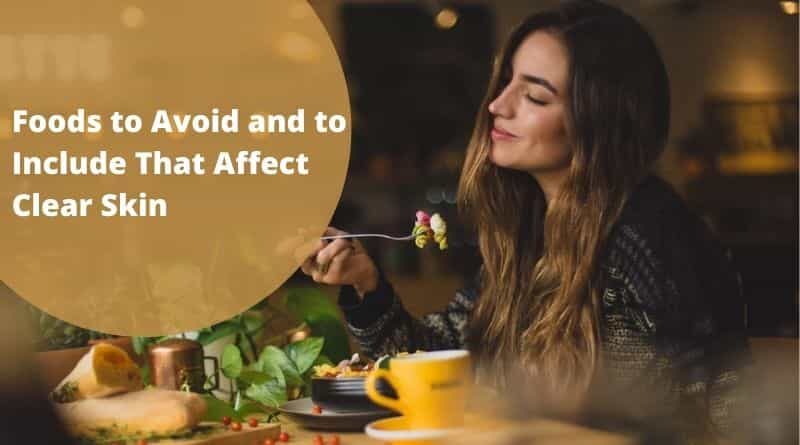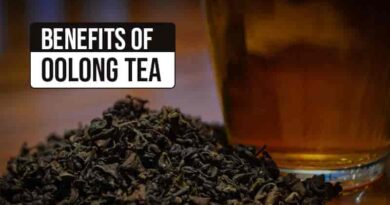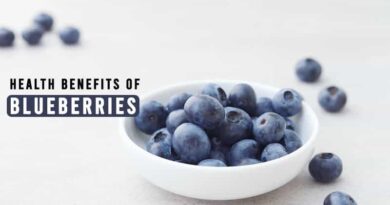5 Foods to Avoid and 3 to Include That Affect Clear Skin
We’ve all heard the old saying, “You are what you eat.” But does that go for our skin, too? Yes, it does! Having a good skin care regimen like washing with a gentle cleanser and using a hydrating face cream can do a world of good. It’s also important to consider what you are eating and how it can affect your skin.
The skin is the largest organ in the human body. An organ is a part of the body with a specific vital function. Some of the skin functions include acting as a protective barrier, retaining moisture in the body, regulating temperature, and producing vitamin D. Proper nutrition helps care for your skin and improves the look — and the health — of one of your most important organs.
Eating a diet to improve your skin reduces inflammation, increases hydration, and supports your immune system. A good diet can help improve skin conditions such as acne, eczema, and dermatitis and reduce overall redness.
Table of Contents
Foods to Avoid for Clearer Skin
High Glycemic Index Foods
Foods and drinks high on the glycemic index can raise your blood sugar quickly, which then causes your body to produce insulin. These spikes in blood sugar can increase inflammation, and some research has shown that it can also increase oil production in the skin.
High glycemic index foods are typically high in refined carbohydrates and sugars. Examples include:
- White bread
- Sugary cereals
- Potato chips and pretzels
- White potatoes and french fries
- Cookies, pastries, and doughnuts
- White rice
- Sweet drinks like sodas, milkshakes, sweetened tea, and coffee
Try to minimize these foods as much as possible and choose healthy alternatives.
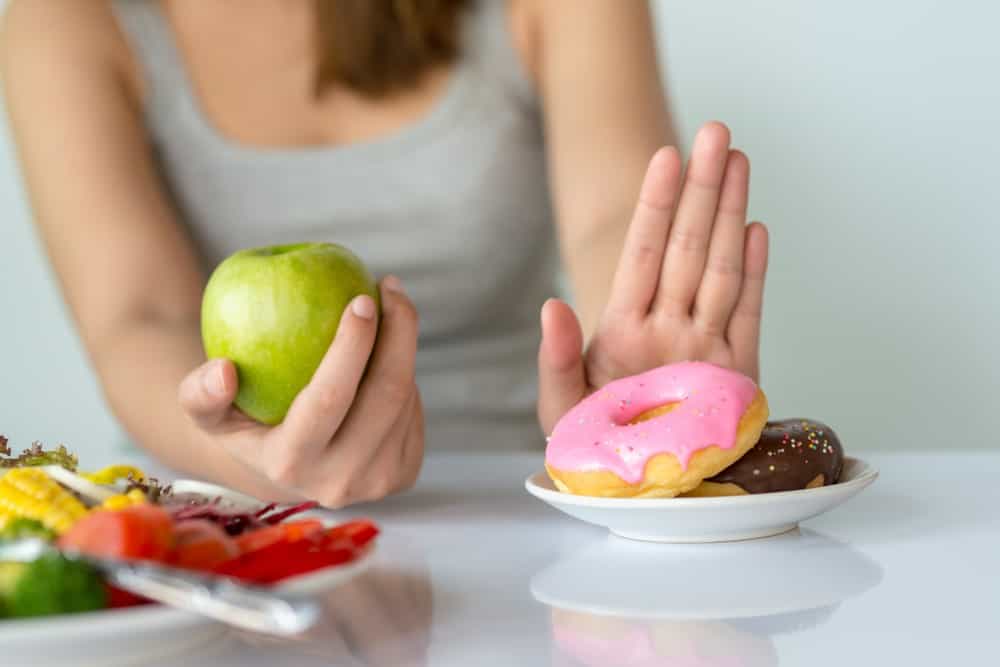
Alcoholic Drinks
When you consume alcohol, it reduces the antidiuretic hormone levels circulating in your body. This is just a confusing way of saying that alcohol causes you to lose more water than you are taking in by drinking, which results in dehydration. Dry skin is more prone to dullness and damage.
Alcohol also increases vasodilation and can cause flushing, redness of the skin and is shown to increase the occurrence of rosacea. If you are one of the many people who have trouble metabolizing alcohol, it can cause hives and itching of the skin. Alcohol intake can also increase sun sensitivity in some people.
Cold Cuts and Processed Foods High in Sodium
High sodium levels will cause the body to retain water to balance out the sodium levels and help the kidneys clean the blood. Retained water leads to puffy skin, especially under the eyes and face. All that water is retained in the body also means less is available to hydrate the skin.
Foods high in salt can also cause a marked increase in inflammation, aggravating conditions such as eczema and atopic dermatitis. To help improve your skin, look for foods lower in sodium and avoid eating processed foods such as bacon, chips, lunch meats, sausage, and fast foods.
Oils High in Omega-6 Fats
Oils high in omega-6 fats have been shown to increase inflammation. It is essential to keep a good balance of omega-3 and omega-6 fats. While some omega-6 fats are necessary, the idea is to have less omega-6 and more omega-3 fats. The typical American diet tends to be much too high in omega-6 fats.
Oils with the highest levels of omega-6 fats are:
- Sunflower oil
- Corn oil
- Soybean oil
- Cottonseed oil
These oils are most commonly used in processed foods, fast foods, and fried foods. Try to avoid these unhealthy sources of omega-6 fats as much as possible for clearer skin.
Dairy and Gluten
Dairy and gluten (a protein found in wheat and other grains) have gotten a lot of bad press these days. Some people cannot tolerate them, or they may have an actual allergy, and those people should avoid them. Some people may find that they have skin problems due to these dietary issues.
If you are wondering if you may be one of those people, try eliminating dairy and gluten from your diet for about a month. Don’t eliminate them simultaneously so that if you find it helpful, you will know which to avoid.
You can also check with your doctor about testing for sensitivities and allergies to foods that may be irritating your skin.
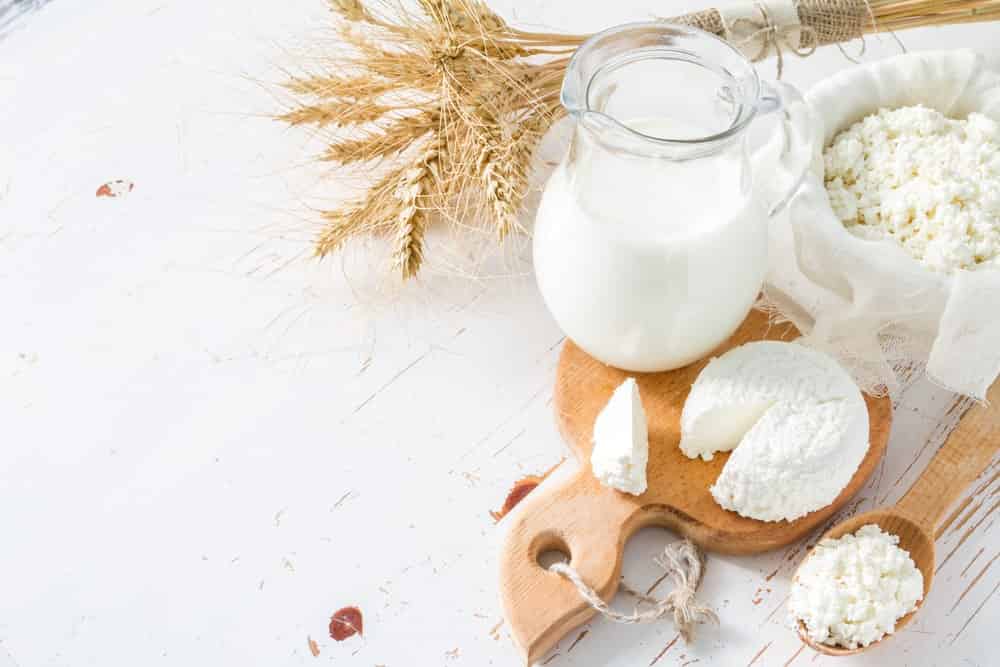
Read: Best and Worst Foods and Drinks to Consume Before Bed
Foods to Include for Clearer Skin
Eating for a healthy body will also lead to healthier skin. That healthy glow comes from within, and nourishing food is the source of that glow.
Foods High in Omega-3 Fats
Increasing omega-3 fats has been shown to improve a variety of skin conditions such as:
- psoriasis
- atopic dermatitis
- acne
- skin ulcers
The same research also showed that an increase in omega-3 fats in the diet could even reduce the incidence of skin cancer.
Foods high in omega-3 fats include:
- chia seeds
- fatty fish
- flax seed
- oysters
- walnuts
- avocados
- soybeans
Try to include these foods every day for better skin health.
Leafy Green Vegetables
We’ve all been told over and over to eat our veggies! There are many good reasons, and healthy skin is just one of them. These vegetables are packed with vitamin D, which helps build healthy cells and can even help improve skin conditions such as psoriasis.
Cruciferous vegetables — such as broccoli, Brussels sprouts, and bok choy — are also in this camp. Leafy greens such as kale, arugula, collards, and spinach are just a few of the vitamin-packed veggies that help improve your skin. They are easy to add to smoothies or your lunch-time sandwich.
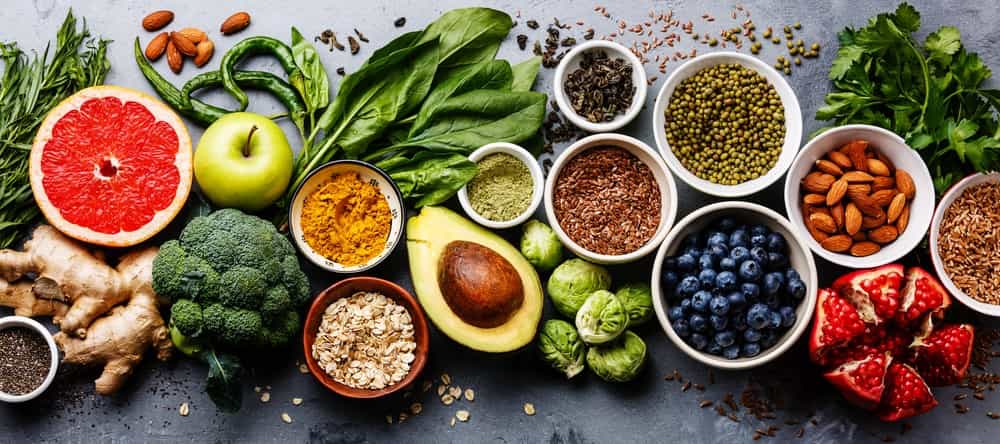
Fruits High in Vitamin C
Include fruits high in vitamin C in your diet to help your skin. Vitamin C is found in the skin and is known for its antioxidant powers. Vitamin C also helps the skin create collagen, creating firmer skin that heals more quickly. In some cases, it can even reduce the appearance of wrinkles.
Fruits containing high levels of vitamin C are:
- Citrus fruits
- Guava
- Kiwi
- Papaya
- Strawberries
- Kakadu plum (an Australian fruit with tons of vitamin C)
Chocolate
There is no definitive evidence that chocolate either helps or harms the skin. It may vary from person to person, and it also depends on what else may be added to the chocolate, such as dairy or sugar.
Take care of your skin every day. Use a gentle cleanser, a good moisturizer, and firming eye cream to nourish your skin from the outside. Eat right and avoid foods that can aggravate your skin to care for it from the inside.

